Business is changing at warp speed. Spreadsheets, siloed systems and on-premises software are a thing of the past; they simply don’t cut it in a competitive landscape.
Today’s businesses require intelligent, cloud-based AI tools that not only run operations but predict problems, seize opportunities and accelerate growth.
This is where top AI cloud business management platform tools fit the picture. They serve as a nervous system at the core of contemporary businesses — integrating, whether they like it or not, their books with customer management, HR, operations, supply chain and analytics and all infused with A.I. juice.
What Exactly Is AI Cloud Business Management Platform?
The march of the AI clouds Taking one to a whole new level, the top AI cloud business management platforms are comprehensive digital ecosystems that consolidate your company’s business functions and operate from within the cloud.
Unlike software that has come before, these platforms are not just repositories of data — they’re intelligent assistants.
Fundamental Functions of AI Cloud Platforms:
To understand the functions of these Top AI Cloud Business Management Platform Tools, the fundamental functions of these platoforms are-
• Process Automation: Eliminate tedious work such as invoice approvals, scheduling and payroll.
• Predictive Analytics: Identify trends before they’re in progress (e.g., running out of cash flow or customer churn).
• Natural Language Interaction: Various systems permit managers to ‘ask’ the system questions in plain language such as “What was last quarter’s revenue by region?” and get instant answers.
• Combine Operations: Finance, HR, CRM, sales, project all in one place.
• Scale At Will: Add functionality or go global, without a large infrastructure investment.
Effectively, these platforms represent hiring an entire team of analysts, accountants, HR managers and customer service reps — only faster, cheaper and around the clock.
Why Businesses Need These Top AI Cloud Business Management Platform Tools?
Top AI Cloud Business Management Platform Tools aren’t just a fad, they’re simply necessary. Here’s why:
Operational Efficiency
AI and automation tools also decrease human error, save time hours through more efficiently automating manual processes. For instance, whereas hundreds of invoices once had to be reconciled manually, AI can do so in seconds.
Faster Decision-Making
Old-fashioned reporting tells us what happened yesterday. AI platforms tell us what’s happening now — and what can be expected tomorrow. That’s what transforms reactive management into proactive leadership.”
Enhanced Customer Experience
From AI chatbots that respond to questions instantly, to predictive personalization (such as serving customers an upsell of the product they’re most likely to buy), these platforms help keep people engaged and loyal.
Cost Optimization
Rather than keeping up with a variety of software licenses and IT staff to maintain it all, cloud platforms streamline everything. This saves on hardware investment and administrative headaches.
Future-Proofing
The latest features are being built into AI platforms as we speak. Adapt to changing business needs and remain agile as your industry changes.
Top AI Cloud Business Management Platform Tools
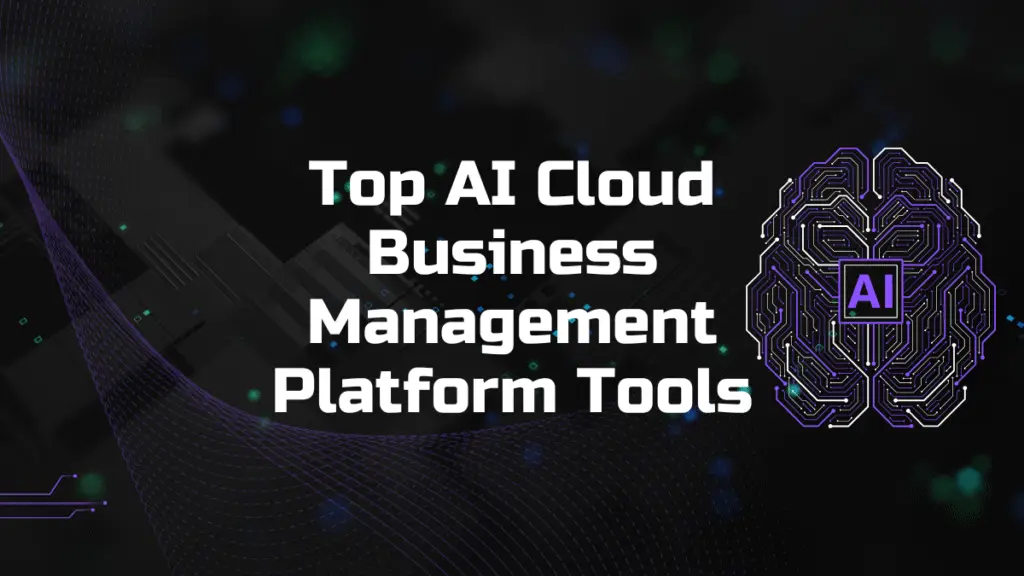
Here’s a detailed look of the Top AI Cloud Business Management Platform Tools at the most trusted, potent and popular platforms across industries.
Monday.com
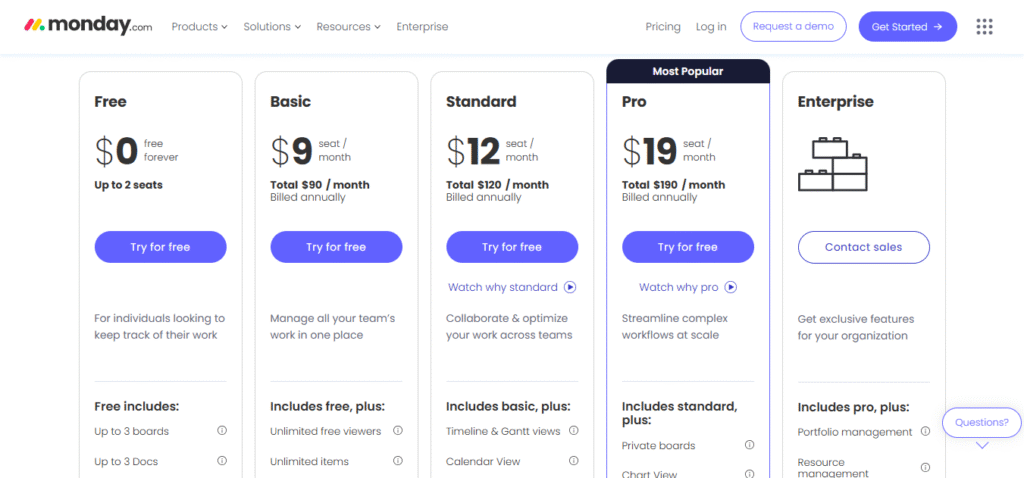
• Overview: From project management to business OS, with AI-driven workflows.
• Perfect For: Teams in need of visual, collaborative and customizable features.
• AI Features: Automated tasks assignment, (possible) deadline predictions, workflow tips.
• Strengths:
– Extremely user-friendly.
– Ideal for team collaboration.
• Weaknesses:
– Shallow financial / HR modules.
Case Example: A Creative Agency using Monday. com to organize customer projects, with AI proposing timelines and also notifying managers about bottlenecks.
Oracle NetSuite
• Overview: A cloud ERP trailblazer, NetSuite caters to businesses that seek full control and visibility across all departments.
• Best For: Mid to large businesses who would require a complete ERP.
• AI Capabilities: Predictive, financial anomaly detection, automated reporting.
• Strengths:
– Full business functionality (finance, HR, supply chain and CRM).
– Scalable for global operations.
– Highly reliable cloud security.
• Weaknesses:
– Requires training for non-technical staff.
– More expensive than SMB-focused tools.
Case Example: A chain of stores with multiple locations, countries or both can work with NetSuite to help manage multi-currency transactions and AI-generated supply chain optimization forecasts as well as maintain compliance across different jurisdictions.
SAP Business Technology Platform (BTP)
• Overview: SAP’s AI-boosted platform is strong and industry-specific, which makes it a hit in manufacturing, logistics and retail.
• Best For: Businesses with complicated, handmade systems.
• AI Capabilities: Smart process automation, machine-learned insights and deep IoT integration.
• Strengths:
– Industry-specific modules.
– Extremely customizable.
• Weaknesses:
– High cost of implementation.
– Complexity requires dedicated IT support.
Case Example: A logistics company leverages SAP BTP to optimize delivery routing in the moment, saving fuel expense and speeding up deliveries.
Microsoft Dynamics 365
• Summary: Merges ERP and CRM, with close ties to the Microsoft universe.
• Best For: Companies already in the Microsoft ecosystem, including Office 365 and Teams.
• AI Capabilities: Predictive sales forecasting, AI Copilot, LiveData as part of real-time customer insights.
• Strengths:
– Familiar UI for Microsoft users.
– Extensive ecosystem of integrations.
• Weaknesses:
– Customization can get expensive.
– Some of the modules can be quite intimidating for small business.
Case Example: A services organization uses Dynamics 365 to predict customer demand and rolls up the forecast directly into Teams for a collaborative workflow.
Zoho One
• Overview: Zoho, which calls itself the “operating system for business,” provides integrated apps with over 50 modules.
• Best For: Small-to-medium businesses looking for affordability and range.
• AI Capabilities: Zia (the AI assistant) offers anomaly detection, chatbot support, and workflow automation.
• Strengths:
– Affordable, subscription-friendly pricing.
– Broad range of apps (CRM, HR, marketing, finance).
• Weaknesses:
– Not as strong for enterprise organizations.
– Limited customization compared to SAP/Oracle.
Case Example: A digital marketing agency is using Zoho One for client invoicing, project tracking, a CRM system with business intelligence and automated reports—all from one dashboard.
Salesforce Einstein
• Overview: Salesforce is the king (or queen) of CRM, and Einstein AI makes it wiser.
• Best For: Businesses focused on improving customer relationships and sales.
• AI Features: Lead scoring, customer sentiment analysis, sales forecasting.
• Strengths:
– Advanced CRM intelligence.
– Massive integration ecosystem.
• Weaknesses:
– Costly add-ons.
– Can overwhelm smaller teams.
Case Example: A SaaS company uses Salesforce Einstein to find high-value leads, and predicts churn to increase how much sales is retained.
Odoo
• Overview: Open source ERP and CRM with more customizability.
• Best For: Startups and SMBs looking for customization.
• AI-capabilities: Predictive demand forecasting, smart process automation.
• Strengths:
– Open-source = freedom to customize.
– Cost-effective.
• Weaknesses:
– Requires technical expertise for setup.
– Inferior out-of-the-box AI if compared to the rest.
Case Example: A relatively small online retailer turns Odoo into an inventory management system with automated reorders and financial reporting for very little investment.
Workday
• Overview: A top name in HR, workforce and financial management.
• Best For: Companies with strong focus on talent and financial planning.
• AI Capabilities: Skill forecasting, machine learning payroll automation, workforce intelligence.
• Strengths:
– HR specialization.
– User-friendly dashboards.
• Weaknesses:
– Not for companies looking for supply chain and/or manufacturing modules.
Case Example: A multinational uses Workday to handle payroll in several countries and predict skill shortfalls among its workforce.
Freshworks (Freshsales + Freshdesk)
• Overview: CRM and Helpdesk on a Budget With AI Based Assistants.
• Best For: Companies early to mid-level in growth looking for inexpensive customer engagement.
• AI Features: Freddy.AI for chatbot, lead scoring and customer sentiment identification.
• Strengths:
– Intuitive, easy onboarding.
– Strong customer support modules.
• Weaknesses:
– Limited scalability for large enterprises.
Case Example: A mid-sized SaaS company employs Freshworks for lead management and support ticket automation, resulting in higher customer satisfaction scores.
Infor CloudSuite
• Overview: Specialized ERP in manufacturing, health care and retail.
• Best For: Vertical-Service-Specific Companies.
• AI Functionality: Demand prediction, operational AI and IoT connections.
• Strengths:
– Tailored to industries.
– Deep analytics.
• Weaknesses:
– Niche oriented, might not be best for general use.
Case Example: a Global manufacturing firm leverages Infor CloudSuite to streamline its supply chains, minimize downtime and predict production needs.
Comparison Table: Top AI Cloud Business Management Platform Tools
| Platform | Best For | AI Features | Ease of Use | Pricing Range | Strengths | Weaknesses |
| Oracle NetSuite | Mid-to-large enterprises needing ERP + global scale | Predictive analytics, anomaly detection, automated financial workflows | Moderate (requires training) | $$$$ (premium pricing) | Comprehensive ERP, strong compliance, scalability | High learning curve, costly for SMBs |
| SAP Business Tech Platform | Large enterprises with complex legacy systems | Intelligent process automation, ML insights, IoT integration | Complex (needs IT support) | $$$$ (enterprise-level) | Industry-specific solutions, robust customization | Expensive, resource-heavy |
| Microsoft Dynamics 365 | Businesses using Microsoft ecosystem (Office, Teams, Azure) | AI Copilot, sales forecasting, customer insights | High (familiar UI for MS users) | $$$ (varies by module) | Seamless Microsoft integration, broad features | Customization costs add up |
| Zoho One | SMBs seeking affordability + all-in-one apps | Zia AI for chatbots, anomaly detection, workflow optimization | Easy (user-friendly) | $ (budget-friendly) | Wide coverage (50+ apps), affordable | Less robust for enterprises |
| Salesforce Einstein | Sales + customer-first companies (CRM-focused) | Lead scoring, customer sentiment, predictive sales | Moderate (training needed) | $$$ (CRM premium pricing) | Advanced CRM AI, massive integrations | Add-ons can be costly, may overwhelm SMBs |
| Odoo | Startups + businesses preferring open-source flexibility | Forecasting, AI-driven reporting, automation | Moderate (tech knowledge required) | $ (cost-effective, open-source) | Customizable, affordable | Needs developer support, limited out-of-box AI |
| Workday | HR + financial planning-focused enterprises | Skills prediction, intelligent payroll, workforce analytics | High (clean UI, easy dashboards) | $$$ (enterprise pricing) | HR specialization, predictive insights | Not suited for manufacturing/supply chain |
| Monday.com | Teams needing project + workflow management | AI automation, predictive deadlines, workflow suggestions | Very easy (visual, drag & drop) | $$ (affordable tiers) | Collaboration-friendly, intuitive design | Limited financial/ERP depth |
| Freshworks (Freshsales + Freshdesk) | SMBs needing CRM + customer support | Freddy AI chatbots, sentiment analysis, lead scoring | Very easy (fast onboarding) | $ (budget-friendly) | Affordable, intuitive, customer-focused | Limited scalability for large firms |
| Infor CloudSuite | Vertical industries (manufacturing, healthcare, retail) | Demand forecasting, IoT, operational AI | Moderate (industry-specific) | $$$ (enterprise-level) | Tailored industry modules, strong analytics | Niche focus, not general-purpose |
FAQs
-
What makes AI cloud platforms different from traditional ERP systems?
There are process-driven and insight-driven systems in place: the former and much of current traditional ERP, while the latter encompasses today’s AI cloud platforms that run processes but also seek to optimize and predict them.
-
Which is the most user-friendly AI Platform for non-technical teams?
Zoho One, Freshworks, and Monday. com are dauntless for non-tech teams.
-
Do AI cloud platforms interface with accounting software such as QuickBooks or Xero?
Yes, All platforms provide integrations with popular accounting software.
-
Can startups use these platforms?
Yes—solutions like Odoo and Zoho are cost effective and adaptable for startups.
-
In what ways AI tools help better customer service?
They provide chatbots, predicted ticket routing and sentiment analysis so that the support provided is faster, smarter etc.
-
What is the expected ROI that can be seen from AI in cloud platforms?
ROI ranges but customers see typically 20%–40% decrease in operational spend, and increase revenue through improved forecasting or via customer retention.
-
Do these networks offer offline or internet-disconnected working options?
Yes, they’re cloud-based and need an internet connection, but most offer offline sync.
-
What are the hidden costs of these tools?
Training, personalization and add-ons can raise that price — be sure to check out the full pricing model.
-
What will be the time to get results from implemented?
Most small businesses see progress in 3–6 months, but big companies may need several years due to their size.
-
What are the fastest growing adopters of AI platforms by industry?
Retail, healthcare, SaaS and manufacturing are light years ahead in adoption because of competition and complexity.
Picking the Perfect Top AI Cloud Business Management Platform Tools
Here are some things to consider in making your choice of platform on picking the perfect Top AI Cloud Business Management Platform Tools:
Business Size and Stage
– Startups → Zoho, Odoo, Monday. com
– SMBs → Freshworks, Zoho, Dynamics 365
– Enterprises → SAP, Oracle, Salesforce
Key Needs
– Finance-heavy? → NetSuite, SAP
– HR-focused? → Workday
– Customer-first? → Salesforce, Freshworks
Budget
– Pinched pennies → Odoo, Zoho, Freshworks
– Premium investment → SAP, Oracle
Ease of Adoption
– Little to training required → Zoho, Freshworks, Monday. com
– Technical Skills Needed → you will need to have some type of technical ability to know – how SAP and Odoo.
Perspective of these Top AI Cloud Business Management Platform Tools in the Future
The decade ahead will see these Top AI Cloud Business Management Platform Tools that are even smarter:
• Generative AI for Reports: Platforms that automatically write summaries, recommendations and strategies.
• Voice-Driven Interfaces: Business operations will be managed by voice controls.
• Hyper-Personalized Customer Journeys: AI knows for sure what, within 10 minutes, customers will want.
• Predictive Supply Chains: Avoid stockouts and overstock before they happen.
• Cyber Defense: Real time AI surveillance on cyber threats.
Final Thoughts
AI, when powered by the cloud and deployed alongside data driven tools will be the future of business. Whether you’re a lean startup or large enterprise, these Top AI Cloud Business Management Platform Tools can help you compete smarter, grow faster and work more efficiently.
Platforms like Oracle NetSuite, SAP, Salesforce, Zoho and Microsoft Dynamics aren’t just tools — they’re growth partners that re-imagine the way a business operates.
The faster you do, the closer you are to automating your business model from reactive to proactive – and finally, predictive.
Click here to read my article on Notion AI Review.


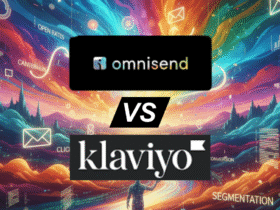
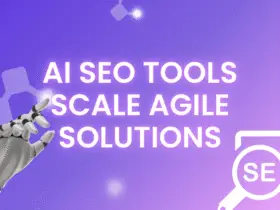
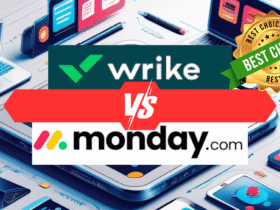
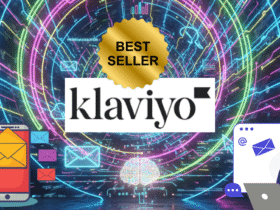

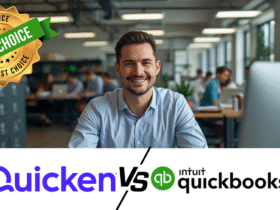

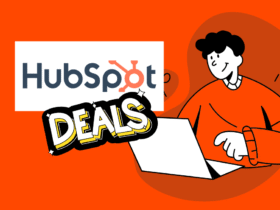

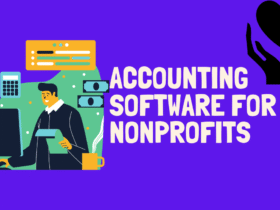
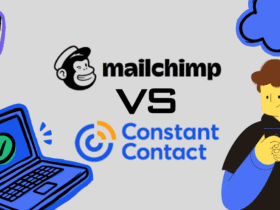
1 Comment